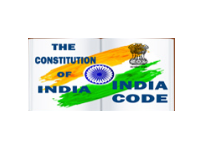Foreword
The Civil Services of India have, overall, served the country well. They have, since Independence, met myriad challenges of development, national integration, mobilization of resources, maintaining communal and sectarian harmony, internal security, ecological conservation, and external relations, to name just a few, competently and impartially. At the same time, it needs to be acknowledged that the world of the 21st century is different, and changing rapidly, from that in which the Civil Services as we know them today were conceived, born, and nurtured.
These changes, within India and beyond, involve significant re-orientation of the goals, norms, and approaches to public management. These comprise the formulation of polices, programmes embodying these policies, and their effective implementation. In turn, these call for, not drastic but nevertheless significant, changes in the orientations, knowledge pool, and incentive structures of the Civil Services. The organizing principle of these needed changes is greater professionalism. This is also the trend, for similar reasons, in the civil services of numerous countries worldwide, both developed and developing.
The group was tasked to address some of the changes believed to be necessary in the management of the Civil Services. More specifically, the mandate of the group was to recommend changes in the system of performance appraisal to ensure greater transparency, so that better performance (or its lack) is fairly and accurately reflected in the appraisal; and to ensure a more clearly defined linkage between performance appraisal, experience and skills, with career advancement and placements in senior positions in the Government. The group realized early in its work that a measure of fidelity to the mandate would require several paradigm shifts in these areas.
Diverse as the challenges of civil service reform are, so too are perspectives and views on how they may be addressed. The group accordingly actively sought the opinions of as many knowledgeable persons as was possible within the time-frame of the study. The group has attempted to reconcile a number of different viewpoints in making its recommendations. The result, we believe, are a coherent set of recommended reforms, whose implementation may be feasible within the constraints of our democratic political system and governmental structure, and yet help realize in significant measure, the overarching objective of greater professionalism.






 कार्मिक एवं प्रशिक्षण विभागDepartment of
कार्मिक एवं प्रशिक्षण विभागDepartment of 













